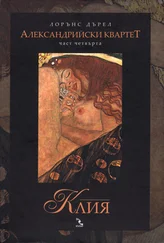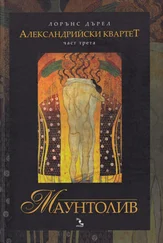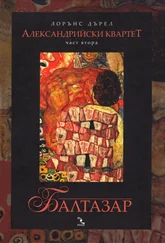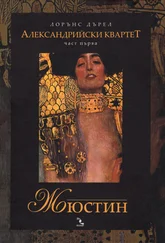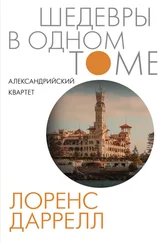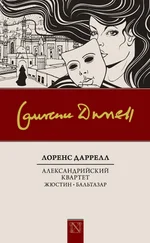Лоренс Даррелл - Prospero's Cell
Здесь есть возможность читать онлайн «Лоренс Даррелл - Prospero's Cell» весь текст электронной книги совершенно бесплатно (целиком полную версию без сокращений). В некоторых случаях можно слушать аудио, скачать через торрент в формате fb2 и присутствует краткое содержание. Жанр: Проза, на английском языке. Описание произведения, (предисловие) а так же отзывы посетителей доступны на портале библиотеки ЛибКат.
- Название:Prospero's Cell
- Автор:
- Жанр:
- Год:неизвестен
- ISBN:нет данных
- Рейтинг книги:4 / 5. Голосов: 2
-
Избранное:Добавить в избранное
- Отзывы:
-
Ваша оценка:
- 80
- 1
- 2
- 3
- 4
- 5
Prospero's Cell: краткое содержание, описание и аннотация
Предлагаем к чтению аннотацию, описание, краткое содержание или предисловие (зависит от того, что написал сам автор книги «Prospero's Cell»). Если вы не нашли необходимую информацию о книге — напишите в комментариях, мы постараемся отыскать её.
Prospero's Cell — читать онлайн бесплатно полную книгу (весь текст) целиком
Ниже представлен текст книги, разбитый по страницам. Система сохранения места последней прочитанной страницы, позволяет с удобством читать онлайн бесплатно книгу «Prospero's Cell», без необходимости каждый раз заново искать на чём Вы остановились. Поставьте закладку, и сможете в любой момент перейти на страницу, на которой закончили чтение.
Интервал:
Закладка:
Earlier than Lithgow by about a decade Fynes Morison dedicated a small place in his Itinerary to a description of the island which deserves quotation. The year was 1596.
'On Sunday the 5th of May we did see the Mountain Fanon (and as I remember an Iland), three miles distant from the Iland Corfu, and upon the Greek shore beyond the Iland, we did see the most high mountains called Chimerae, inhabited by the Albanesi, who neither subject to the Turks nor Venetians, nor any other, do upon occasion rob all; and the Venetians, and the Kings of France, and especially of Spain, use to hire them in their wars.
'The Iland Corfu inhabited by Greeks is very fertile, yielding plenty of fruits, corn, wine, currants, and this haven is fortified with two Forts cut out off a Rock, namely, the old and the new Fort (which is more than a mile in circuit), both being very strong and held inexpugnable, so as the island is worthily reputed one of the Chief Keys of Christendom.'
2.10.37
The literati of 'The Partridge' have spent a great deal of time upon the etymological derivation of the word 'Corfu'. The current explanation that the Byzantine use of the word was related in some way to [Greek] (meaning twin-peaked) is not entirely acceptable to Zarian though Theodore's more exacting scholarship appears to accept the idea. Any modern Greek dictionary will list [Greek] which means a gulf'; while research into the word Corcyra will give you the following: [Greek] (a tail, a handle); [Greek] (a fish); and [Greek] (a weaver's comb, a leg-bone, a fiddle-bow).
Each of us has his preference in this burning matter. Nimiec, who is an unqualified cynic in all things concerning the Greek language and character, chooses the latter as being most likely because least logical. N. thinks that the gulf is the simplest and most prosaic derivation. I prefer the figurative and visual derivation from a tail, because the island does taper away into a handle at the southern end — as anyone can see by glancing at the map. Zarian clings to the simple and fishy derivation, declaring that the island has at all times been famous for its abundance of fish. 'You will notice how carefully the wells are blessed by the priests against the summer drought; have you ever seen them blessing the sea?'
Theodore prefers to remain beyond the range of all this inexact and unfruitful scholarship. He merely shakes his head and sips his yellow wine.
4.10.37
According to Diodorus, the Sicilian, Kerkura, the daughter of Oceanus and Tethys was carried into the island by Neptune. Here she bore the loved Phaex who ruled over it calling it Korkura.
Bochart derives the two names Scheria and Kerkyra from the Phoenecian words 'scara' meaning 'commerce' and 'carcara' meaning 'abundance'.
The island's fertility made it the favourite abode of green Ceres; it was here she concealed the scythe with which the first Titians were taught the art of husbandry. Hence the antique name Drepani, a reaping hook.
It was also called Macria after the fair Macris who took refuge here from the wrath of Juno.
5.10.37
As late as the third century B.C. a cave was shown to the superstitious where the marriage Jason and Medea was said to have taken place; as well as an altar to Apollo.
In the Naupactican Verses quoted by Pausanias they were said to have returned here, and it is recorded that their son Mermeras was killed while hunting on the opposite coast.
Short-sighted Procopius in the sixth century A.D. was shown the petrified bark of Ulysses but his incredulity transformed it into a fabric of stones dedicated to Jupiter Cassius by a wandering merchant.
6.10.37
Diodorus says that the island was originally colonized from some very remote part of the world; and indeed during the Trojan wars Corcyra was looked upon as a mysterious, semi-mythical island-a beautiful boundary-stone at the very edges of the known world. Enter Calypso's cave on the island north of Corcyra, and you will hear nothing but the faint bumping of the tides against the headland and the thin, shrill appeals of the gulls.
There are no Cyclopean remains in Corcyra; consequently you are free from the oppressive blood guilt of Tiryns — its blocks of hewn stone drenched with blood: of Mycaenae with its burial grounds choked with bodies, and the obsessive numbing drone of bees in the dark tomb of Agamemnon. You are still in a Latin world.
7.10.37
Temples were once numerous; Thucidides mentions temples to The Dioscori, Juno, and Alcinous; Jupiter Cassius was worshipped with sacrifices at Kassopi on the northern gulf.
9.10.37
The Greek permits himself one cerebral disturbance which from time immemorial has been capable of overturning the whole structure of the state: politics. Not the barren politics of abstractions and principles, but the warm cruel politics of the heart: heroworship, the advancement of parties and personalities. In this alone we catch a glimpse of his bitter dualism of heart — an interior anarchy, which will not let him rest. I have been dipping into Jervis and wondering at the sameness of the general pattern; both in ancient and modern times it is the same impetus which carries affairs forward: arguments, obsessions, pride, panic, self-advancement.
'Mnasippus, bent on reducing the town by starvation. . '
'Being in need of money to pay his men Iphicrates attempted to ransome his numerous prisoners. . '
'Ctesicles attempted to restore order and unity.'
Yet the anecdotal material in the history of this one small island is all the richer for the variety of its detail.
14.10.37
Periander, tyrant of Corinth, gave it as a present to his brutish son Lycophron who became its ruler. For a long time past bitter quarrels had been breaking out between them; at last a reconciliation took place, and so great was Periander's relief that he wrote suggesting that they should exchange thrones. When the Corcryreans became aware of the intentions of the feared and detested father of Lycophron, they rose up in a panic and slew the son-which was, of course, the worst thing they could have done. In revenge for this Periander seized three hundred Corcyrean nobles who happened to be living in his domains and sent them as slaves to the dreadful Alyattes II. Fortunately, however, the ship bearing these unfortunates was blown into Samos by a north-wester, and the indignant Samiots risked the wrath of Periander by rescuing them
15.10.37
'. .Of the affairs of this period,' writes Jervis, 'little more than confused accounts remain. It appears from a fragment of Diodorus the Sicilian that not long subsequent to the battle of Ipsus, Cassander beseiged Corcyra by sea and by land, but he was obliged to raise the seige by Agathocles of Sicily himself who burnt the whole of the Macedonian Fleet and afterwards gave the island as a dowry to his daughter Lanassa, on her marriage with Pyrrhus, King of Epirus.
Owing, however, to frequent intercourse with the East polygamy had become prevalent with Greek Princes; Pyrrhus was already married to two wives, one a Poeonian and the other an Illyrian Princess; and the attention he paid to them aroused the jealousy of the Syracusan lady. In order to revenge herself Lanassa retired to Corcyra.'
It is a landscape that does not nourish jealousies; certainly Lanassa's broken heart was soon mended; for the sent a proposal of marriage to the great Demetrius Poliorcetes himself. This Prince was so handsome that, it was said, no sculptor could be found whose art could do justice to him. His reaction to this proposal was at once thoughtful and deeply considered as befitted a prince and a political man. As he had recently concluded a non-aggression pact with the terrible Agathocles her father, he thought it would fit in very well, if he sealed the pact by marrying the heart-broken Lanassa. A story for moralists.
Читать дальшеИнтервал:
Закладка:
Похожие книги на «Prospero's Cell»
Представляем Вашему вниманию похожие книги на «Prospero's Cell» списком для выбора. Мы отобрали схожую по названию и смыслу литературу в надежде предоставить читателям больше вариантов отыскать новые, интересные, ещё непрочитанные произведения.
Обсуждение, отзывы о книге «Prospero's Cell» и просто собственные мнения читателей. Оставьте ваши комментарии, напишите, что Вы думаете о произведении, его смысле или главных героях. Укажите что конкретно понравилось, а что нет, и почему Вы так считаете.


